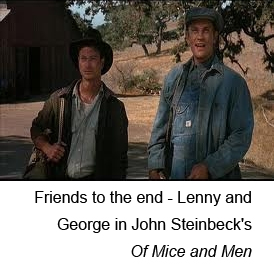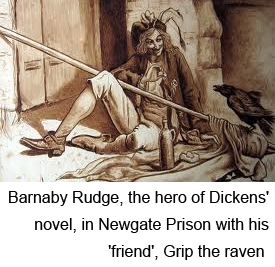You are here
- Home
- Conferences
- Conference 2011
- 'Guy don't need no sense to be a nice fella'
'Guy don't need no sense to be a nice fella'
The friendships of people with learning disabilities as depicted in the novel and short story from 1841 to the present day
Simon Jarrett
Friendships are part of what defines us as people. Without at least someone in our life who knows us, understands us, likes us and simply values us for who are we are, an important part of our humanity is lost.
This paper explores how a selection of writers have understood and portrayed the friendships of people with learning disabilities in the past 170 years. Through these fictional characters we gain some understanding of public attitudes to learning disability over this period across the world, but also through the eyes of novelists we see the impact of friendship, or lack of it, on people’s lives. For many novelists it is the exploration of relationships and their impact which gives meaning to their characters. Their insights therefore give us some understanding of how different societies at different times have understood, or denied, the humanity of people with learning disabilities.
The talk looks at two nineteenth century novelists, Charles Dickens and Emile Zola, who portrayed characters with learning disabilities in their novels. Moving forward into the twentieth century, it examines learning disabled characters portrayed by three American writers between the two world wars – Jack London, William Faulkner and John Steinbeck. Finally we move into more recent times and see what changes in the understanding of people with learning disabilities and their place in the world have emerged. This part of the talk examines the work of three novelists – Daniel Keyes, author of the science fiction classic Flowers for Algernon, David Cook, the author of Walter and Winter Doves and finally Allan Mayer, who read extracts from his novel Tasting the Wind at last year’s conference.
All of these writers help us to explore and think about issues of friendship. What is friendship? How do we find it? What happens when friendship is denied to a person? What does friendship (or lack of it) mean in the lives of people with learning disabilities? What do these portrayals of friendship tell us about attitudes to learning disability over the last two centuries, and how they have changed?
The talk features short readings from each of the books and a discussion of their significance.


Contact us
About the Group
If you woud like to get in touch with the Social History of Learning Disability (SHLD) Research Group, please contact:
Liz Tilley
Chair of the Social History of Learning Disability (SHLD) Research Group
School of Health, Wellbeing and Social Care
Faculty of Wellbeing, Education and Language Studies
The Open University
Walton Hall
Milton Keynes
MK7 6AA
About the website
If you have any feedback or would like to report a problem with the website, please contact WELS-Research-Admin@open.ac.uk.